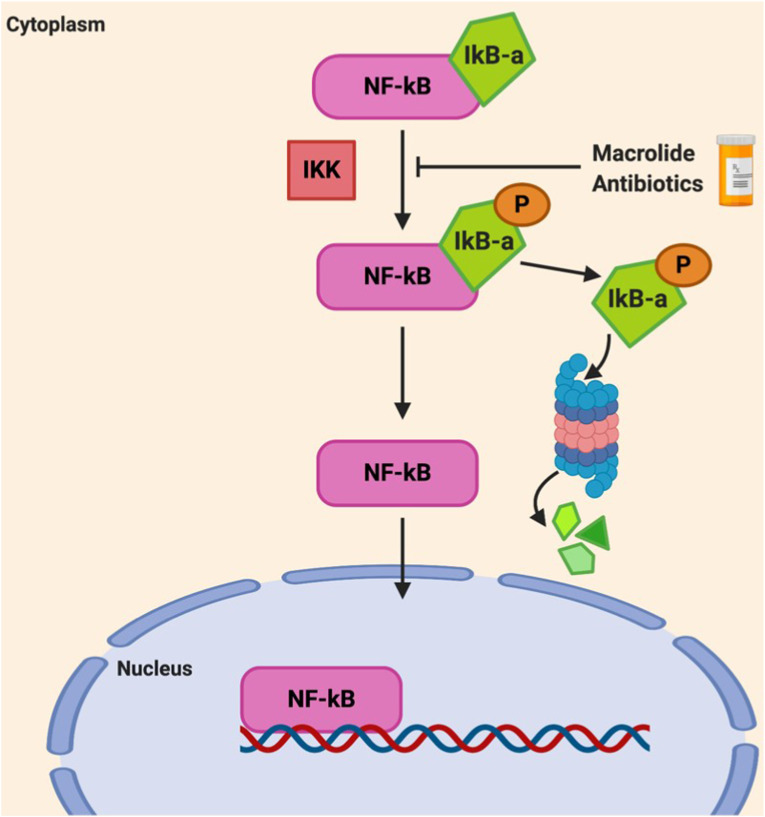Fig. 4.
The Effect of Macrolides on NF-κB. In resting state, NF-κB is inactive in the cytoplasm due to inhibition by the IκB-α inhibitory protein. During inflammation, IκB-α becomes phosphorylated by IκB Kinase (IKK), which mediates degradation of IκB-α by the proteosome. The removal of IκB-α allows NF-κB to translocate into the nucleus to regulate inflammatory gene expression. Macrolides decreased the phosphorylation, and therefore degradation, of IκB-α thereby keeping NF-κB in an inactive state. (Adapted from Beinke and Ley., 2004) [104].

